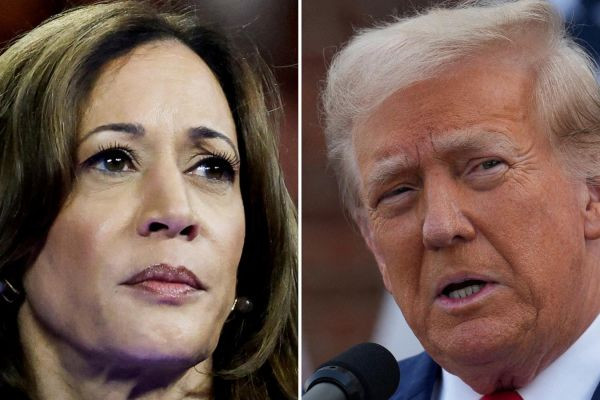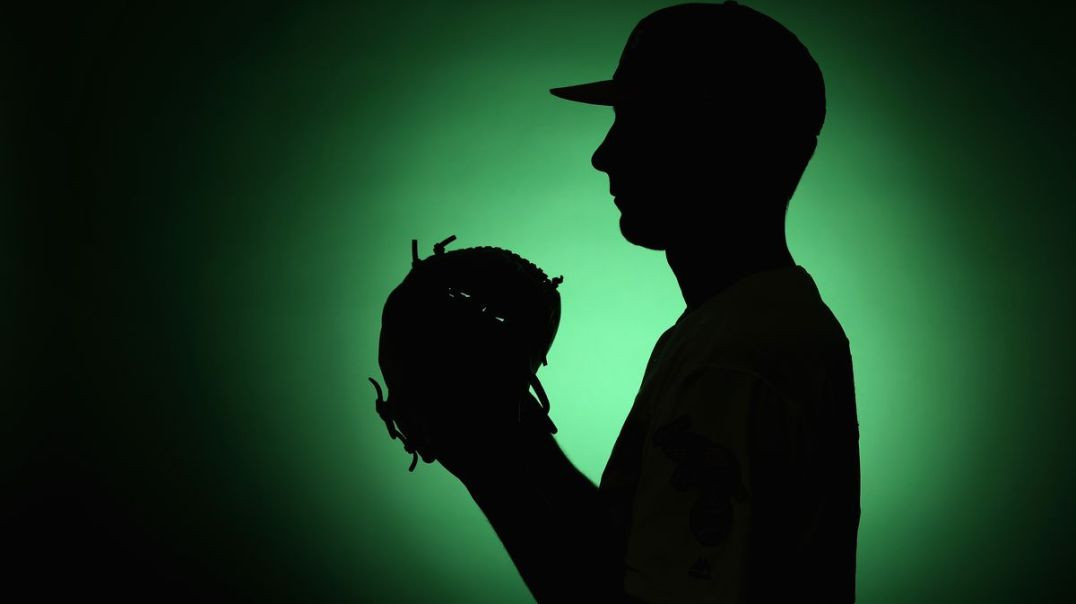As the U.S. political landscape braces for what is expected to be one of the most intense election seasons in history, behind-the-scenes preparation for debates between Donald Trump and Kamala Harris is heating up. With both sides knowing that their performances could tip the scales in a fiercely divided nation, the stakes couldn’t be higher. Debate preparation is no longer about merely reciting policy points or soundbites; it's a complex, psychological chess match where body language, tone, and quick rebuttals are just as important as facts and figures.
This deep dive into the debate prep reveals surprising strategies, from method acting and rehearsed insults to meticulously crafted tough questions, designed to sharpen each candidate's performance. Here’s a closer look at the tactics each camp is using to prepare for one of the most critical events of the election season.
Trump's Debate Style: The Power of Insults and Unscripted Zingers
Donald Trump has long been known for his bombastic debate style, a blend of unscripted remarks, quick-witted insults, and a refusal to play by the traditional rules of political discourse. His team understands that his strength lies in his unpredictability and his ability to dominate the stage. For this reason, Trump's debate prep leans heavily on improvisation, allowing him to create moments that will resonate with his base, even if they sometimes seem off-the-cuff or unpolished.
Method Acting with Trump
One of the more unique aspects of Trump’s debate preparation involves method acting. His advisors often enlist surrogates to play the role of his opponent in mock debates. This time, someone is carefully rehearsing the mannerisms, voice, and rhetorical style of Kamala Harris to mimic her as closely as possible. This approach allows Trump to feel as though he’s in the actual debate, preparing him to react instinctively to her body language and tone.
In these mock debates, the "Kamala stand-in" hurls sharp, policy-based questions while maintaining the disciplined calmness Harris is known for. Trump’s response strategy, on the other hand, focuses more on dominance than depth. His rehearsed lines frequently revolve around labeling Harris as “radical” or “incompetent,” aiming to land a knockout punch early in the debate. His coaches know that Trump’s debate success often depends on creating memorable moments of attack rather than nuanced policy discussion.
The Insult Arsenal
One of Trump's defining debate strategies has always been his use of insults to rattle his opponents. In 2016, it was “Crooked Hillary” and “Low Energy Jeb,” and now, his team is crafting equally potent epithets for Harris. In debate rehearsals, Trump has practiced quick-hit attacks designed to disrupt Harris’s composure, aiming to steer the conversation away from complicated policy issues and toward emotionally charged exchanges.
His advisers, though, are cautious about overreliance on this tactic. While his 2016 performance benefited from cutting insults, the political landscape has shifted. Trump’s team is therefore trying to balance the brashness that energizes his base with enough restraint to appeal to undecided voters who may be turned off by overly personal attacks.

Tough Question Drills
Despite his preference for unscripted remarks, Trump’s team knows he will face tough questions from moderators and Harris herself, especially regarding his handling of COVID-19, foreign relations, and legal controversies. Trump has undergone rigorous drills in his debate prep sessions where his team poses pointed, potentially damaging questions. These include direct challenges on issues like his multiple indictments, his refusal to concede the 2020 election, and his administration’s handling of racial protests.
Rather than avoiding these subjects, Trump’s advisors encourage him to tackle them head-on with deflections or counter-attacks. When asked about controversies, Trump is coached to pivot to his perceived successes—such as economic growth during his term, criminal justice reform, or peace agreements in the Middle East. The goal is to ensure that any potentially damaging question is met with a response that redirects the focus onto his strengths or frames his challenges as unjust persecution.
Harris's Strategy: Commanding Authority While Avoiding the Pitfalls of Being “Too Aggressive”
Kamala Harris faces a different challenge in her debate preparation. As a woman of color, Harris has to walk a fine line in a debate setting, where aggression can be weaponized against her. Her team is acutely aware of this challenge and has crafted a preparation strategy designed to portray Harris as authoritative without appearing confrontational—a careful balancing act given Trump’s confrontational style.
Mock Debates with Method Acting
Like Trump, Harris also undergoes mock debates in preparation, with a stand-in for Trump who is well-versed in his unpredictable debate tactics. These rehearsals are intense, with the "Trump stand-in" frequently interrupting and making derogatory comments, forcing Harris to practice maintaining her composure under pressure.
The purpose of these mock debates is to prepare Harris for Trump’s bullying style without letting her lose her calm or overreact. Her team has trained her to use measured pauses, direct eye contact with the camera, and a firm, authoritative tone to project control, even when Trump tries to derail the conversation.
Perfecting the Balance: Sharp Yet Steady
One of Harris's key strengths is her prosecutorial background, which has served her well in previous debates. Her team has fine-tuned this strength, encouraging her to craft pointed, direct questions for Trump—especially regarding his record on issues like immigration, women’s rights, and racial inequality. However, the challenge for Harris is to ensure these attacks don't come across as overly harsh or “too aggressive”—a criticism female candidates have historically faced in debate settings.
Harris’s prep sessions have involved crafting statements that pack a punch while remaining steady in delivery. Rather than matching Trump’s fiery style, her goal is to contrast his volatility with calm confidence, making her seem more presidential to undecided voters. Her advisors have also encouraged her to steer the conversation toward policy discussions, where she can highlight her experience and expertise in areas like criminal justice and healthcare.
Handling Trump’s Insults and Interruptions
A key focus of Harris’s preparation is her ability to handle interruptions and insults—hallmarks of Trump’s debate style. Harris’s team has been drilling her on methods to regain control of the conversation without becoming flustered or visibly irritated. They’ve worked on techniques like redirecting the question to her core policies or addressing the audience directly when Trump attempts to derail the discussion.
During mock debates, Harris is also practicing humorous or firm retorts to Trump’s expected insults, ensuring that she doesn’t let his remarks go unanswered while maintaining a professional demeanor. Her team knows that a well-timed, sharp rebuttal can generate viral moments that appeal to a wide audience.
The Role of Tough Questions in Harris’s Prep
Harris’s team is acutely aware that she will face tough questions, not just from Trump, but from moderators eager to test her readiness to step into the presidency, especially given President Biden’s age. In her prep sessions, Harris has been drilled with pointed questions about her record as California’s attorney general, her stance on progressive issues, and the Democratic Party’s handling of key issues like inflation and immigration.
Her team has prepped her to own her record and to highlight her accomplishments while presenting a vision for the future. They’ve also worked on responses that acknowledge challenges but quickly pivot to solutions, emphasizing her readiness to lead and to serve as a capable vice president.
Conclusion: The Ultimate Showdown
The Trump-Harris debate promises to be a defining moment in the election season, where two vastly different styles and ideologies will collide. Trump’s team is betting on his signature blend of unpredictability and dominance, while Harris’s camp is focused on steady authority and a disciplined, thoughtful approach.
The debate stage will not just be a battleground for policy but a test of character, resilience, and style, as both candidates attempt to sway a deeply divided electorate. With method acting, rehearsed insults, and tough questions at the heart of their preparation, both Trump and Harris are gearing up for what may be one of the most memorable debates in modern U.S. political history.



